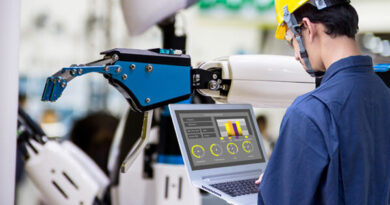Deep Tech: Shaping the Future of Innovation
In today’s rapidly shifting technological landscape, a new frontier is emerging that promises to fundamentally alter our world:
Deep Tech. Unlike incremental upgrades or consumer-centric innovations, deep tech ventures into the core of scientific and engineering advancements, pushing beyond the boundaries of what’s currently achievable. This blog explores the essence of deep tech, its profound significance, and its potential to revolutionize industries and society as a whole.
What Defines Deep Tech?
Deep tech is characterized by its foundation in advanced scientific research and engineering prowess. Unlike more superficial technological developments, deep tech aims for transformative breakthroughs that redefine entire sectors. These innovations are marked by extensive research and development efforts, lengthy and unpredictable timelines, and a requirement for specialized expertise. Deep tech often intersects with various fields, including artificial intelligence, quantum computing, biotechnology, advanced materials, and nanotechnology, combining these disciplines to drive innovation.
Key Aspects of Deep Tech:
- Quantum Computing: A Leap into the Quantum Realm
- Quantum computing represents a seismic shift in computational power.Unlike traditional computers that rely on bits, quantum computers utilize quantum bits, or qubits, which can exist in multiple states at once. This capability enables them to execute intricate calculations at speeds far beyond those achievable by classical machines.The potential applications are vast, from revolutionizing cryptography to advancing drug discovery and enhancing climate modeling.
- Artificial Intelligence and Machine Learning: Crafting Intelligent Systems
- AI and machine learning are central to the deep tech revolution, evolving from basic automation to creating systems that learn, adapt, and anticipate human needs. These technologies are making waves across various domains, including autonomous vehicles, which navigate complex environments, and personalized healthcare systems that tailor treatments to individual patients. The impact of AI and ML is far-reaching, with potential applications spanning predictive maintenance in industry to sophisticated data analysis in finance.
- Biotechnology: Redefining Life and Health
- Biotechnology is a cornerstone of deep tech, transforming our approach to health and life sciences. Innovations such as CRISPR gene editing and synthetic biology are leading to breakthroughs that could cure genetic disorders, extend human lifespan, and create entirely new forms of life. CRISPR allows precise DNA modifications, paving the way for new treatments for previously incurable diseases, while synthetic biology enables the design of custom organisms for specific tasks, such as producing sustainable biofuels or cleaning environmental pollutants.
- Advanced Materials: Constructing Tomorrow’s Solutions
- Advances in materials science are at the heart of deep tech, leading to the creation of substances with extraordinary properties. Materials like graphene, known for its strength and thinness, and metamaterials, which manipulate electromagnetic waves in innovative ways, are opening new possibilities across various industries. These materials could revolutionize sectors such as energy, with more efficient solar cells, and construction, with lighter, stronger building materials.
- Nanotechnology: Engineering at the Atomic Scale
- Nanotechnology involves manipulating matter on a scale as small as atoms and molecules. This technology has the potential to transform numerous industries, from medicine to electronics. In healthcare, nanotechnology could enable targeted drug delivery systems that precisely address cancer cells, reducing side effects and improving treatment efficacy. In electronics, it promises the development of smaller, faster, and more efficient components, driving the next generation of technological advancements.

Why Deep Tech Matters?
Deep tech is not just about pushing technological boundaries; it’s about addressing some of the world’s most critical challenges. It holds the promise of making significant impacts in areas such as climate change, healthcare, energy sustainability, and food security. For instance, innovations in deep tech could lead to new methods for renewable energy generation, advanced treatments for diseases, or innovative agricultural practices to support a growing global population.
Moreover, deep tech marks a departure from the rapid, often short-term focus seen in traditional tech industries. It demands a more deliberate, research-driven approach, emphasizing long-term benefits and ethical considerations. This shift is essential for ensuring that technological advancements are not only groundbreaking but also responsible and sustainable. Deep tech is about creating solutions that provide lasting value to society, rather than just immediate financial returns.
The Future Landscape of Deep Tech:
The future of deep tech is brimming with potential. With increased investment in research and development and a burgeoning ecosystem of startups, we are on the brink of a new era of technological innovation. Both government bodies and private enterprises are recognizing the transformative potential of deep tech, fostering greater collaboration and funding.
However, the journey is fraught with challenges. Deep tech requires substantial investments of time, capital, and expertise, and its path to market is often long and uncertain. Additionally, there are ethical and regulatory hurdles to navigate, such as ensuring AI systems are unbiased and transparent or managing the safe development of new biotechnologies.
Despite these challenges, the rewards of deep tech are substantial. For those willing to invest in its development, deep tech offers the chance to lead the next wave of technological progress, creating solutions that have a profound and lasting impact on our world.
Conclusion: The Transformative Potential of Deep Tech
Deep tech represents the cutting edge of innovation, where the convergence of science and technology addresses the most complex problems facing humanity. It’s an arena where visionary ideas are realized, setting the stage for a future where technology not only enhances our lives but fundamentally changes how we live and interact with the world.
As deep tech evolves, it offers a compelling glimpse into a future rich with possibilities. This new era promises to turn today’s challenges into tomorrow’s opportunities, making deep tech a revolutionary force that will shape the course of human progress. The road ahead is challenging, but the potential for transformative change is immense, making the journey into deep tech one of the most exciting ventures of our time.
FAQs:
1. What exactly is Deep Tech, and how does it differ from conventional technology?
Deep tech encompasses groundbreaking innovations based on advanced scientific research and complex engineering. Unlike conventional technology, which often focuses on user-friendly features and gradual enhancements, deep tech aims to tackle intricate problems and explore new frontiers. It involves extensive R&D, long development timelines, and technical depth, striving to create transformative solutions that push the limits of current technology.
2. How do quantum computers function, and why are they considered a game-changer?
Quantum computers utilize quantum bits, or qubits, which can represent multiple states at the same time due to quantum superposition. This capability allows quantum computers to perform intricate calculations at speeds far surpassing traditional computers. They are seen as a game-changer because they can address complex problems and optimize processes that are currently beyond the reach of classical computing systems, such as advanced simulations and cryptographic analysis.
3. What are some practical uses of artificial intelligence and machine learning in the realm of deep tech?
Artificial intelligence (AI) and machine learning (ML) are revolutionizing various sectors. In healthcare, they power personalized medicine and predictive diagnostics. In autonomous driving, AI enables vehicles to interpret data and make real-time decisions. In finance, ML algorithms are employed to identify fraudulent activities and enhance trading strategies. These applications showcase how AI and ML are driving innovation and efficiency across different domains.
4. How does biotechnology address global issues, and can you provide some examples?
Biotechnology leverages biological systems and organisms to tackle significant global challenges. Examples include CRISPR technology, which allows for precise genetic modifications to treat hereditary diseases, and lab-grown organs that help alleviate the shortage of transplants. Additionally, synthetic biology is used to produce eco-friendly biofuels. These innovations offer promising solutions to critical issues such as healthcare, environmental sustainability, and resource management.
5. What are advanced materials, and how are they transforming deep tech?
Advanced materials are specially engineered substances with extraordinary properties. For instance, graphene is a remarkably strong and lightweight material with potential uses in electronics and energy storage. Metamaterials can manipulate electromagnetic waves in novel ways, leading to advancements like invisibility cloaks and enhanced imaging technologies. These materials are central to developing next-generation technologies and improving existing ones.
6. What role does nanotechnology play in deep tech, and what impact might it have on different sectors?
Nanotechnology involves working at the atomic and molecular levels to create materials and devices with unique attributes. Its impact is significant across multiple sectors. In medicine, it enables targeted delivery of drugs directly to disease sites, improving treatment precision. In electronics, it contributes to the creation of smaller, more efficient components. The ability to manipulate matter at such a small scale opens up new possibilities for innovation in various industries.
7. What obstacles do deep tech ventures face, and how can these be addressed?
Deep tech ventures often grapple with high development costs, lengthy timelines, and intricate technical challenges. Additionally, they must navigate regulatory and ethical issues, especially in areas like AI and biotechnology. Overcoming these obstacles requires substantial investment in research, strategic partnerships with academic and industry leaders, and careful navigation of regulatory frameworks to ensure innovations are effective and ethically sound.
8. How can individuals or organizations become involved in deep tech projects?
Individuals can engage with deep tech by pursuing careers in fields such as computer science, biotechnology, or materials science. Organizations can invest in or collaborate with deep tech startups, participate in research initiatives, or integrate deep tech solutions into their operations. Staying informed about emerging technologies and fostering an environment of innovation can also facilitate active involvement in deep tech developments.




